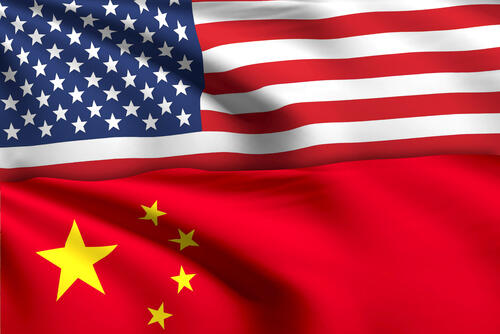The Pandemic, U.S.-China Tensions and Redesigning the Global Supply Chain
This is a virtual event. Please click here to register and generate a link to the talk.
The link will be unique to you; please save it and do not share with others.
The disruption of the 2020 pandemic, coupled with significant economic tensions between China and the US, have resulted in global companies rethinking their supply chains. Many have called for drastic changes - reshoring, near-shoring, regionalization of vertical supply chains, increasing redundancies, or diversification of Chinese manufacturing to Southeast Asia, South Asia, Africa or Latin America, etc. Empirical data, however, reveal that many are taking a more cautious approach. Leading companies are continuing to develop innovative ways to redesign their supply chains that still preserve China as their key supply source. This talk will share some of these innovative ways that, in the end, may provide better long term values.
 Hau L. Lee is the Thoma Professor of Operations, Information and Technology at the Graduate School of Business at Stanford University. He was the founding faculty director of the Stanford Institute for Innovation in Developing Economies (SEED), and is the current Co-Director of the Stanford Value Chain Innovations Initiative. Professor Lee’s expertise is on global supply chain management and value chain innovations. He has published widely in top journals on supply chain management. He was inducted to the US National Academy of Engineering, and elected a Fellow of MSOM, POMS; and INFORMS. He was the previous Editor-in-Chief of Management Science. In 2006-7, he was the President of the Production and Operations Management Society. His article, “The Triple-A Supply Chain,” was the Second Place Winner of the McKinsey Award for the Best Paper in 2004 in the Harvard Business Review. In 2004, his co-authored paper in 1997, “Information Distortion in a Supply Chain: The Bullwhip Effect,” was voted as one of the ten most influential papers in the history of Management Science. His co-authored paper, “The Impact of Logistics Performance on Trade,” won the Wickham Skinner Best Paper Award by the Production and Operations Management Society in 2014. In 2003, he received the Harold Lardner Prize for International Distinction in Operations Research, Canadian Operations Research Society. Professor Lee obtained his B.Soc.Sc. degree in Economics and Statistics from the University of Hong Kong, his M.Sc. degree in Operational Research from the London School of Economics, and his M.S. and Ph.D. degrees in Operations Research from the Wharton School of the University of Pennsylvania. He was awarded an Honorary Doctor of Engineering degree by the Hong Kong University of Science and Technology, and an Honorary Doctorate from the Erasmus University of Rotterdam.
Hau L. Lee is the Thoma Professor of Operations, Information and Technology at the Graduate School of Business at Stanford University. He was the founding faculty director of the Stanford Institute for Innovation in Developing Economies (SEED), and is the current Co-Director of the Stanford Value Chain Innovations Initiative. Professor Lee’s expertise is on global supply chain management and value chain innovations. He has published widely in top journals on supply chain management. He was inducted to the US National Academy of Engineering, and elected a Fellow of MSOM, POMS; and INFORMS. He was the previous Editor-in-Chief of Management Science. In 2006-7, he was the President of the Production and Operations Management Society. His article, “The Triple-A Supply Chain,” was the Second Place Winner of the McKinsey Award for the Best Paper in 2004 in the Harvard Business Review. In 2004, his co-authored paper in 1997, “Information Distortion in a Supply Chain: The Bullwhip Effect,” was voted as one of the ten most influential papers in the history of Management Science. His co-authored paper, “The Impact of Logistics Performance on Trade,” won the Wickham Skinner Best Paper Award by the Production and Operations Management Society in 2014. In 2003, he received the Harold Lardner Prize for International Distinction in Operations Research, Canadian Operations Research Society. Professor Lee obtained his B.Soc.Sc. degree in Economics and Statistics from the University of Hong Kong, his M.Sc. degree in Operational Research from the London School of Economics, and his M.S. and Ph.D. degrees in Operations Research from the Wharton School of the University of Pennsylvania. He was awarded an Honorary Doctor of Engineering degree by the Hong Kong University of Science and Technology, and an Honorary Doctorate from the Erasmus University of Rotterdam.

Via Zoom Webinar. Register at: https://bit.ly/35bMWQx




